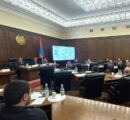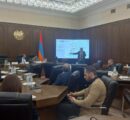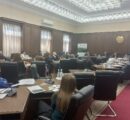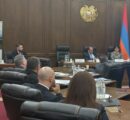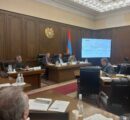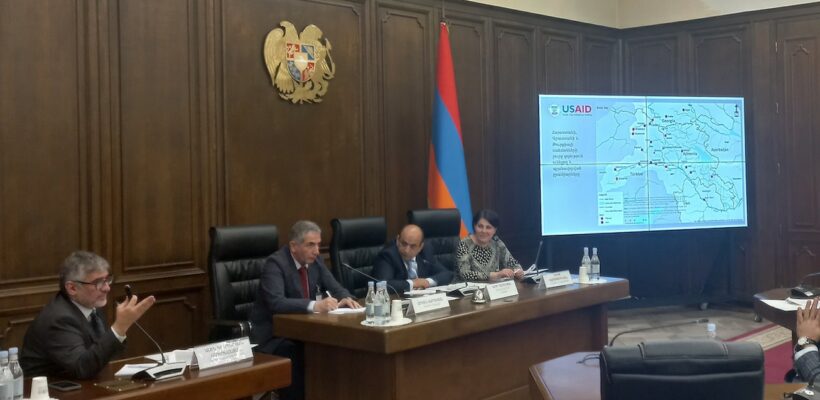
AUA Acopian Center Presents Water-Sector Analysis at RA National Assembly
2 min readYEREVAN, Armenia — On March 28, American University of Armenia (AUA) Acopian Center for the Environment Director Alen Gasparian Amirkhanian presented the Political Economy Analysis (PEA) of Armenia’s Water Sector to the Republic of Armenia (RA) National Assembly Members of Parliament (MPs), assistants, experts, and staff.
The PEA was prepared by the AUA Acopian Center under contract from Deloitte Consulting, the implementing partner of the five-year USAID/Armenia Improved Water Management for Sustainable Economic Growth Program launched in 2022.
The event, held in the Parliament building, brought together MPs from the majority and opposition factions, MPs’ assistants, committee experts, and staff from the Expertise and Analytical Department. In his remarks, Chair of the Standing Committee on Territorial Administration, Local Self-Government, Agriculture, and Environment Protection Vahe Ghalumyan expressed hope that water sector consultations with the National Assembly will be regular in nature and that the Committee is ready for closer cooperation.
USAID Armenia Project Management Specialist Lilit Harutyunyan highlighted USAID’S role in supporting Armenia’s water sector reforms over the past 25 years, working with the government, parliament, and other stakeholders. Harutyunyan stressed the importance of working jointly in a harmonized fashion to address issues related to Armenia’s water sector.
The USAID/Armenia Improved Water Management Program Chief of Party, Armen Varosyan, presented the Program’s mission and objectives, highlighting that it is the first time that such a PEA has been conducted in the country. This will assist in formulating a strategic approach to Armenia’s water sector.
Next, Amirkhanian presented the main findings of the PEA, which utilized USAID methodology, consisting of a framework with four analytical lenses to guide assessment: (1) foundational factors (unchanging or very slowly changing factors), (2) rules of the game (the formal and informal ways decisions are made), (3) the here and now (what is currently most critically important), and (4) the dynamics of the three (how all three interact to foster or hinder change). The report includes recommendations for the National Assembly as well as the RA government, which were also presented. A final version of the report will be released in the coming month. For updates, visit here.
During the Q&A session, some of the key discussions focused on Armenia’s reservoir management and construction plans, improved methodologies for data collection, transboundary water diplomacy, and the need for a unified national water strategy.
The USAID/Armenia Improved Water Management Program aims to transform Armenia’s approach to water management to improve the equity of access to water while maintaining environmental flow and water quality for the protection of freshwater resources. For more on the program, visit here.
The AUA Acopian Center for the Environment, a research center of the American University of Armenia (AUA), promotes the protection and restoration of the natural environment through research, education, and community outreach. The AUA Acopian Center’s focus areas include sustainable natural resource management, biodiversity protection and conservation, greening the built environment, sustainable energy, as well as information technology and the environment. Visit http://ace.aua.am.

